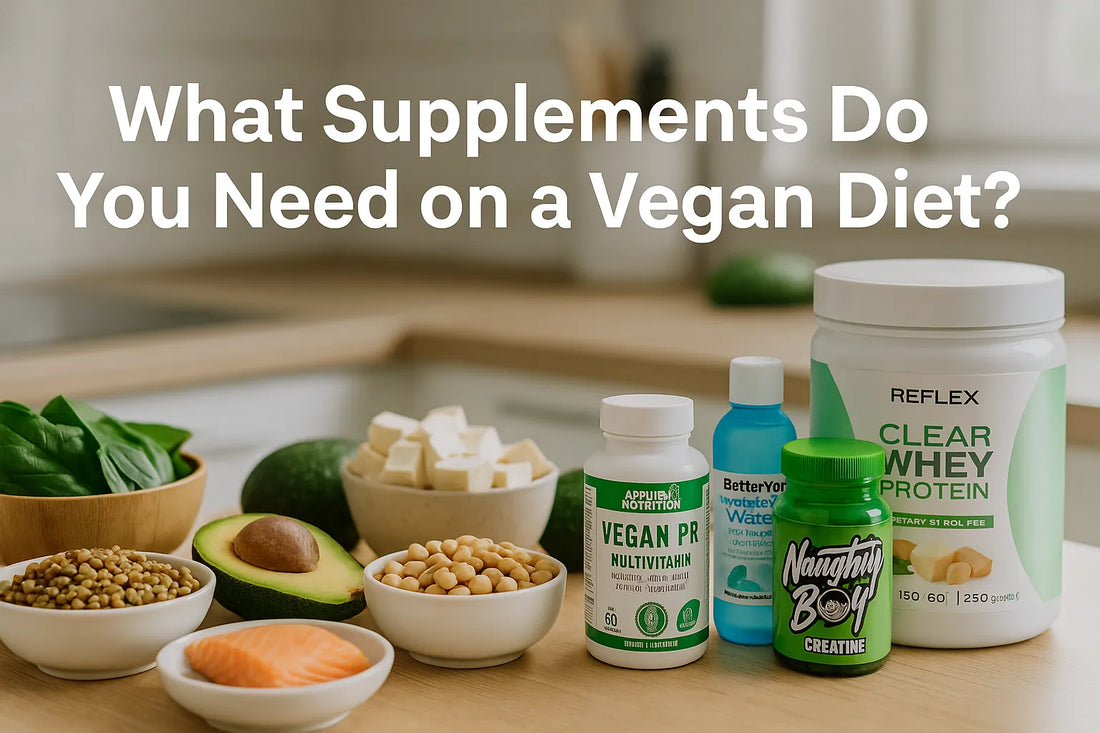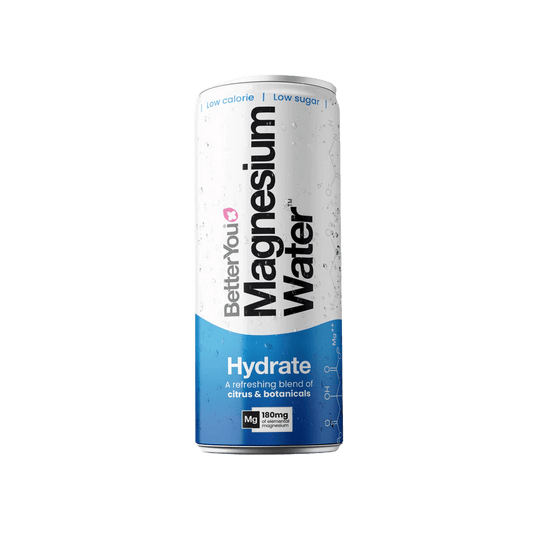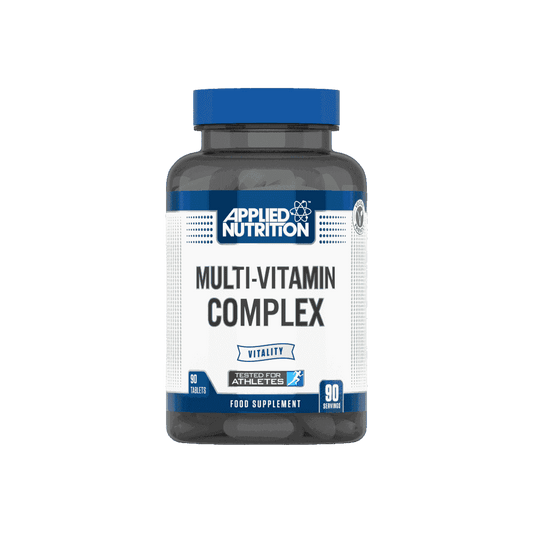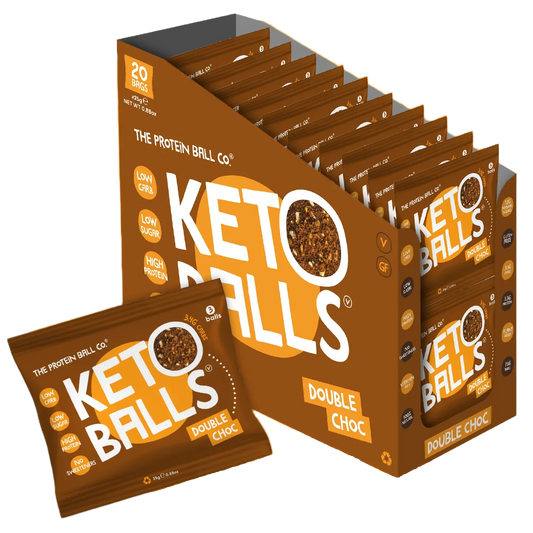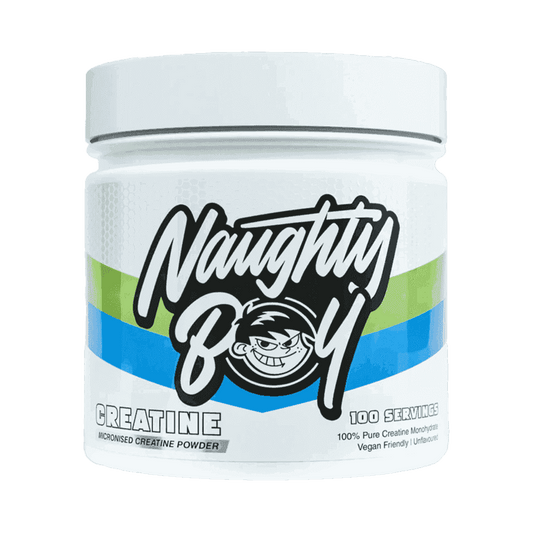Adopting a vegan diet is often painted as the ultimate clean and ethical way of eating. Plant-based living has exploded in popularity over the past decade — from performance athletes going fully vegan to students choosing it for health, environmental, or ethical reasons. But one of the biggest questions that comes up time and time again is this: do vegans need supplements?
The answer isn’t black and white. A vegan diet can absolutely provide energy, fibre, and a wide variety of antioxidants that omnivores often miss. But when it comes to essential nutrients — things like vitamin B12, omega-3 fatty acids, and even minerals like magnesium — the conversation shifts. Unlike keto or carnivore diets where carbs and fibre are the challenge, vegan diets often miss the building blocks that animal products deliver in abundance.
The good news? With a thoughtful approach to nutrition — and some strategic supplementation — vegans can not only match but sometimes outperform their omnivore counterparts in energy, strength, and recovery. Let’s break it down supplement by supplement, and see where products like Applied Nutrition Multivitamin, Supplement Needs Omega 3, and Naughty Boy Prime Creatine can step in to fill the gaps.

Do You Need to Take Supplements on a Vegan Diet?
It’s possible to get many nutrients on a vegan diet through plants, legumes, fortified foods, and careful planning. But unless your fridge looks like a nutritionist’s Pinterest board 24/7, the reality is: most vegans will benefit from supplementation.
Why? Because there are certain nutrients that are either not found at all in plants or not present in bioavailable forms. B12 is the classic example — no matter how many lentils or leafy greens you eat, your body simply can’t extract usable B12 without supplementation. Likewise, long-chain omega-3s (DHA and EPA) are almost absent in plant foods. Flaxseeds and chia provide ALA, but the conversion is notoriously poor — less than 5%.
Supplements don’t replace a balanced diet, but they do make it possible to keep training hard, studying, or just getting through the workday without deficiencies piling up. That’s where products like Applied Nutrition Multivitamin give you a solid baseline. Instead of worrying about whether your iron or zinc intake is optimal on any given day, you’re covering your bases with one easy capsule.
What Vitamins and Minerals Do Vegans Lack?
There are a few “usual suspects” when it comes to vegan deficiencies:
-
Vitamin B12 – Absolutely essential for nerve health, DNA production, and red blood cells. Without it, fatigue and brain fog creep in fast.
-
Vitamin D – Already low in much of the UK population due to limited sun, and tricky for vegans without supplementation.
-
Omega-3s (DHA/EPA) – Key for brain health, heart health, and reducing inflammation — yet almost absent in vegan diets.
-
Iron – Plant-based iron (non-heme) is less absorbable, meaning anaemia risk is higher.
-
Zinc – Important for immunity and recovery, but often underconsumed.
-
Magnesium – While technically available in nuts, seeds, and leafy greens, vegan diets often still fall short, especially for athletes.
It’s not just about avoiding sickness — these nutrients directly impact how you perform. Try to lift heavy while low on magnesium or creatine, and you’ll feel it. That’s why adding BetterYou Magnesium Water or Naughty Boy Prime Creatine into a vegan supplement stack makes all the difference.
Do Vegans Need B12?
This one’s not up for debate: yes.
B12 is made by bacteria, not plants. In the past, our ancestors got it from soil and untreated water, but in today’s sanitised world, supplementation is the only reliable option for vegans. Without B12, symptoms like weakness, poor concentration, memory issues, and even permanent nerve damage can occur.
Most dietitians consider B12 supplementation non-negotiable for vegans. A daily multivitamin like Applied Nutrition Multivitamin makes this effortless — it takes away the guesswork and ensures you’re protected long term.
Do Vegans Need Omega-3 (DHA/EPA) Supplements?
The short answer: yes, if you care about your brain, joints, or recovery.
Plant-based diets offer ALA omega-3 from flax, chia, and walnuts. But studies show the conversion rate of ALA to DHA/EPA is tiny. DHA and EPA are the omega-3s your body actually uses for things like brain health, reducing inflammation, and cardiovascular support.
This is where Supplement Needs Omega 3 comes in. It delivers those usable fatty acids directly, bypassing the inefficient conversion process. For athletes or students, this can mean sharper focus, faster recovery, and lower inflammation — all major wins if you’re training hard or grinding through long days.
Do Vegans Need Vitamin D?
Vitamin D is a population-wide issue, not just a vegan one. In the UK, we simply don’t get enough sun exposure for much of the year. For vegans, it’s even more important since fortified foods (like milk or oily fish) aren’t usually part of the diet.
Vitamin D supports immune function, mood, and bone health — all critical for young adults pushing themselves in the gym or at work. Vitamin D3 is the preferred form, and plenty of vegan-friendly sources exist now. Multivitamins like Applied Nutrition Multivitamin often include this, giving a simple daily top-up.
Do Vegans Lack Magnesium?
Magnesium is one of those minerals that flies under the radar — but if you’re low, you’ll know. From poor sleep to muscle cramps to sluggish recovery, magnesium deficiency is a real performance killer.
Vegans do get magnesium from nuts, seeds, and leafy greens, but the demands of training, stress, and everyday life often outpace intake. That’s where BetterYou Magnesium Water shines. Easy to sip, refreshing, and delivering a steady dose of this essential mineral. Whether it’s after a tough training session or just winding down for the evening, it’s one of the simplest ways to support sleep and recovery.
Should Vegans Take a Protein Supplement?
Here’s where things get interesting. Vegans can absolutely hit protein targets through lentils, beans, tofu, tempeh, and seitan. But hitting 120g+ of protein daily (a common goal for active adults) purely through food isn’t always practical.
That’s where supplements step in. Products like Reflex Nutrition Clear Whey Protein give a refreshing, light way to get an extra 20–25g of protein without adding another heavy bean-based meal. And for on-the-go snacking? The Protein Ball Co Keto Balls are perfect — plant-based, portable, and macro-friendly.
The result? You’re able to hit those protein numbers consistently without feeling bloated or tied to the kitchen.

Do Vegans Need Creatine?
Here’s a big one: yes, vegans benefit massively from creatine.
Creatine is naturally found in meat and fish, which means vegans tend to have lower baseline levels. That shows up in both strength and cognition — slower recovery, reduced explosiveness in the gym, and even weaker memory scores.
Supplementing with creatine brings vegans up to the same baseline as omnivores — and often beyond. Naughty Boy Prime Creatine is a great pick here, offering pure creatine monohydrate to drive strength, muscle fullness, and focus. For female athletes especially, creatine is one of the safest and most effective supplements available, vegan or not.
Can You Thrive on a Vegan Diet Without Supplements?
Theoretically, yes. Practically? Not for long.
Without supplementation, vegan diets almost always trend toward deficiencies in B12, omega-3, and vitamin D at the very least. Over time, this leads to fatigue, weaker immunity, poor recovery, and reduced performance in both the gym and everyday life.
With a smart supplement stack, however, vegans can cover these gaps easily — and thrive. A stack built around:
-
Applied Nutrition Multivitamin (for B12, vitamin D, zinc, iron cover)
-
Supplement Needs Omega 3 (for DHA/EPA)
-
BetterYou Magnesium Water (for sleep, recovery, muscle function)
-
Reflex Clear Whey Protein + The Protein Ball Co Keto Balls (for protein support)
-
Naughty Boy Prime Creatine (for strength, cognition, and performance)
… ensures you’re not just “getting by” on a vegan diet, but performing at your best.
What Supplements Do You Need on a Vegan Diet? (Part 2)
We’ve established the foundation: B12, omega-3, magnesium, protein, and creatine are non-negotiables for most vegans who want to thrive. But the vegan journey doesn’t end there. Now it’s time to dig into the finer details — fibre, caffeine, rules of plant-based eating, and how to avoid pitfalls. This is where vegan supplementation moves from “bare minimum” survival to actually optimising performance, recovery, and long-term health.
Do You Need a Fibre Supplement on a Vegan Diet?
Most people assume vegans never need fibre. After all, isn’t the diet basically built around fibre-rich foods like beans, oats, and veggies? For sedentary vegans, that’s often true. But for athletes, things can look different.
Training hard can mean eating calorie-dense, lower-fibre meals to meet protein and energy targets. Think smoothies, white rice, or pasta-based vegan meals. Over time, fibre can dip below optimal levels, leading to digestion issues, energy crashes, and even poor satiety.
So, do vegans need a fibre supplement? Possibly — but not always. It depends on how much whole-food variety is in the diet. Instead of going straight for powders, many prefer to use snacks like The Protein Ball Co Keto Balls, which deliver a convenient hit of fibre alongside plant protein. This makes them double effective: you’re not just fuelling recovery but also supporting digestion and appetite control.
Why Am I Not Losing Weight on a Vegan Diet?
Many people assume switching to vegan automatically means dropping weight. But the truth is, a calorie surplus is still a calorie surplus — whether it’s tofu or steak. Vegan diets can sneak in a lot of calories through oils, nut butters, breads, and processed snacks.
Supplements won’t “burn fat” in isolation, but they can support the process. For example:
-
Naughty Boy Prime Creatine ensures you keep strength and muscle while dieting.
-
Reflex Clear Whey Protein provides high-quality protein without excess calories.
-
BetterYou Magnesium Water supports recovery and better sleep, reducing the cravings and fatigue that often derail weight loss.
Weight loss on vegan diets isn’t about restriction; it’s about balance. Supplements help lock in nutrient coverage while calories are reduced — meaning you lose fat without losing performance.

How Long Does It Take to See Results on a Vegan Diet?
The results depend on your goal. If you’re cutting weight, changes can appear in just two weeks. For performance improvements — more energy, less inflammation, better digestion — it may take a month or more of consistent vegan eating.
Supplementation plays a major role in whether results are sustainable. Without omega-3 or B12, you might initially feel great, then crash hard once deficiencies build. With a smart stack (multivitamin, omega-3, creatine, magnesium), improvements in recovery, focus, and energy can appear within weeks — and actually last.
How Long Should You Stay Vegan?
This is one of the most debated questions. Some use vegan diets as a 30-day challenge. Others see it as a lifelong identity. The key point? The longer you stay vegan, the more strategic supplementation becomes.
In the first month, deficiencies are unlikely to show up. By six months, if you’re not taking B12 or omega-3, you may start to feel brain fog or fatigue. After years, serious health risks can emerge. That’s why supplements like Applied Nutrition Multivitamin, Supplement Needs Omega 3, and BetterYou Magnesium Water aren’t optional extras — they’re cornerstones of a sustainable vegan lifestyle.
For athletes, adding Naughty Boy Prime Creatine ensures muscle preservation and gym performance don’t dip, no matter how long you follow the diet.
Do Vegans Need Vitamin D?
Vitamin D is often called the “sunshine vitamin” because our bodies synthesize it when skin is exposed to sunlight. But in the UK and much of Europe, where cloudy days dominate and winters stretch long, many people—vegans included—struggle to get enough.
For vegans, the challenge is twofold. Firstly, animal foods like oily fish, eggs, and fortified dairy are common sources of vitamin D. Secondly, vegan diets can lack direct D3 (cholecalciferol), the form most effectively used by the body. While some mushrooms exposed to UV light contain vitamin D2, it isn’t always as potent.
That’s why supplementation is crucial. A daily vitamin D3 supplement sourced from lichen ensures optimal absorption without breaking vegan principles. Pairing it with magnesium-rich hydration, such as BetterYou Magnesium Water, improves bioavailability and supports deeper recovery.
Without this support, vegans can experience fatigue, low mood, weakened immunity, and reduced bone health—factors that directly impact gym performance.
Do Vegans Lack Magnesium?
Magnesium is a mineral often overlooked, but it’s vital for over 300 enzymatic processes in the body. It supports energy metabolism, nerve conduction, and muscle recovery. While leafy greens, legumes, and nuts are solid vegan sources, absorption can be hindered by compounds like phytates found in plant foods.
That’s where supplementation can bridge the gap. BetterYou Magnesium Water provides a highly bioavailable form of magnesium, easy to absorb and convenient post-workout. For active vegans, magnesium helps reduce cramping, supports deep sleep, and improves exercise recovery—all crucial when you’re training hard on a plant-based diet.
Can You Thrive on a Vegan Diet Without Supplements?
This is a popular question among new vegans. The short answer: yes, but with difficulty. A carefully planned vegan diet can meet most nutritional needs if you’re vigilant about fortified foods and balanced intake. However, for most people, relying on supplements ensures long-term health, particularly for performance goals.
Applied Nutrition Multivitamin is a strong foundation, offering wide coverage across potential deficiencies. Combine it with Supplement Needs Omega 3, Vitamin B12, and Naughty Boy Prime Creatine, and you build a resilient nutritional stack that takes the guesswork out of performance nutrition.
Supplements don’t replace whole foods, but they do provide a safety net that helps vegans thrive rather than scrape by.
Should Vegans Take a Protein Supplement?
Protein is never just about quantity—it’s about quality and completeness. Plant proteins often miss one or more essential amino acids, making it harder to meet muscle repair and growth needs. For this reason, many vegan athletes and gym-goers benefit from a dedicated protein supplement.
Reflex Clear Whey Protein offers a refreshing, light option perfect post-workout, while The Protein Ball Co Keto Balls provide a tasty, portable snack. Adding protein supplementation doesn’t just protect against deficiencies—it helps maximise training results, giving vegans the same anabolic edge as omnivores.
What Are the Most Important Rules of a Vegan Diet?
Staying vegan is about more than avoiding meat and dairy—it’s about building a balanced, nutrient-dense lifestyle. Here are some golden rules:
-
Plan for nutrients at risk: Always account for B12, iron, zinc, omega-3, and vitamin D.
-
Emphasise variety: Mix whole grains, legumes, nuts, seeds, and vegetables to ensure amino acid completeness.
-
Hydrate smartly: Magnesium and electrolytes help offset deficits caused by plant-based absorption challenges.
-
Prioritise recovery: Protein powders and creatine ensure your training results don’t plateau.
-
Be realistic: Supplements are not a weakness—they’re a strategy for longevity and strength.

What to Avoid While Being Vegan?
Veganism doesn’t automatically equal health. It’s easy to fall into the trap of processed vegan junk foods—burgers, nuggets, and sweets—which can leave you feeling sluggish despite technically being “plant-based.”
Instead, focus on whole foods and smart supplementation. Avoid over-relying on soy isolates or single nutrient-heavy foods. A balanced stack with multivitamins, creatine, omega-3, and magnesium ensures you’re not missing out, even if you indulge in convenience now and then.
Conclusion: Building a Resilient Vegan Stack
The vegan lifestyle is powerful, ethical, and increasingly popular—but to truly thrive, supplementation is non-negotiable. Without animal foods, deficiencies in B12, omega-3, vitamin D, zinc, and magnesium are highly likely, and for gym-goers, this can mean fatigue, poor recovery, and stalled progress.
By building your supplement base around:
-
Applied Nutrition Multivitamin – wide coverage for daily essentials
-
Supplement Needs Omega 3 – vegan DHA/EPA for brain, heart, and recovery
-
BetterYou Magnesium Water – hydration and performance edge
-
Naughty Boy Prime Creatine – strength, energy, and training support
-
Reflex Clear Whey Protein – complete protein for growth
-
The Protein Ball Co Keto Balls – convenient fuel on the go
…you protect yourself from hidden deficiencies and set yourself up to not just survive veganism but excel in it—whether that means building muscle, improving endurance, or simply staying sharp in daily life.
FAQ: Vegan Diet & Supplements
1. Do vegans really need supplements?
Yes. While it’s possible to get nutrients from food, supplements like B12, omega-3, and vitamin D fill unavoidable gaps in vegan diets.
2. Which is the most important supplement for vegans?
Vitamin B12 is essential—it’s almost impossible to get adequate amounts from plant foods alone.
3. Can vegans take creatine?
Absolutely. Creatine is naturally found in meat, so vegans benefit even more from supplementation for strength, recovery, and brain health.
4. What’s the best protein for vegan athletes?
Reflex Clear Whey Protein and plant-based blends ensure complete amino acid profiles that support muscle repair and growth.
5. Do vegans need omega-3?
Yes—especially DHA and EPA, which are difficult to obtain from plants alone. Vegan omega-3 capsules derived from algae are the solution.
6. Should vegans take a multivitamin?
A broad-spectrum multivitamin like Applied Nutrition Multivitamin covers common gaps including iron, zinc, and vitamin D.
7. Can vegans get enough magnesium naturally?
It’s possible, but absorption is often poor due to phytates. Supplementing with BetterYou Magnesium Water ensures consistent support.
8. Do vegans need collagen?
Collagen is animal-derived, but vegans can use protein powders and vitamin C to support natural collagen synthesis.
9. Can supplements replace whole foods?
No—they are a safety net. Whole foods remain the foundation, but supplements ensure no nutrient is overlooked.
10. Can you thrive long-term on a vegan diet with supplements?
Yes. With the right stack, you can maintain energy, recovery, and performance for decades while staying 100% plant-based.

